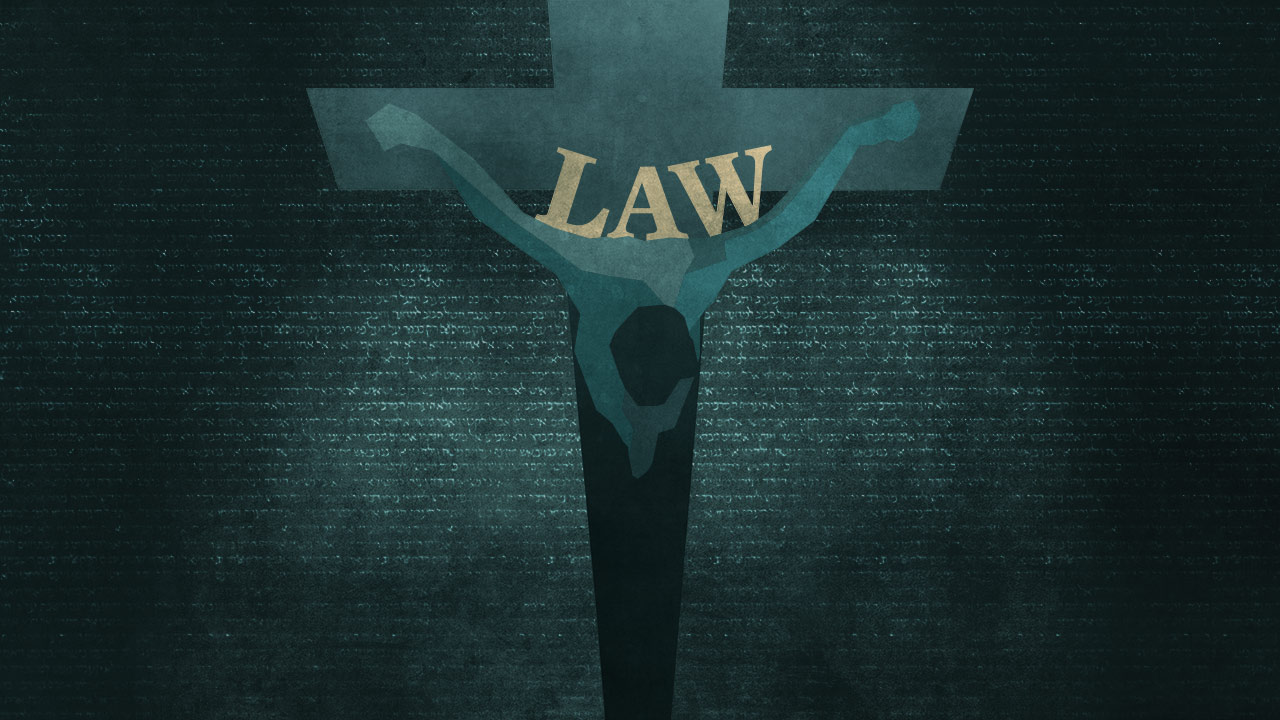What were some of the rules that your parents laid on you when you were young? Don’t cross 27th Street. Children are to be seen and not heard. Don’t touch Mrs. Mitchell’s pomegranate. Always do your homework so you can grow up and be a bank teller. You see, Grandmomma thought that men who wore a suite to work were important men. How did you react to those pesky rules? I have to admit that I considered rules were like baseball hitting records - they were made to be broken. I don’t remember a time when my Grandmomma warned me not to cross 27th street that I didn’t cross it the first time that Tommy Lovitt asked me if I wanted to see the frog he had caught down at the ditch. There was no switching so severe as to dissuade me from holding a freshly caught frog.
As we grew older, rules seemed to interfere with everything that was fun. Stay away from girls who giggle all the time. Don’t ever smoke your first cigarette - a rule that unfortunately for me came long after my first cigarette. No nice girls will go to a drive-in movie which only provoked a search for bad girls.
Poor us. We have spent our whole life in bondage to rules. Some are good and some are bad. But the bottom line is that rules really complicate life. You will be happy to know that rules have been with us for a long time and they have always provoked agitation among those obligated to keeping the rules. Now admit it, wouldn’t it be a lot easier if you didn’t have somebody tacking up on your front door a long list of rules especially if that list was so long that it ran down the wall, across the porch, down the steps, along the sidewalk and then out into 27th Street? At some point you have to say to Grandmomma that she doesn’t have to tell you not to cross 27th street anymore. In today’s study, Paul makes that same point. You have grown up now and don’t need to have Grandmomma telling you what to do and what not to do.
Last week, Paul wrote a letter to the churches in Galatia. Was it a sweet complimentary letter? Was Paul happy or annoyed? Here is what had happened. Galatia was mostly made up of Gentiles. When Paul founded the churches there, he preached that the Gentiles could have salvation by believing that Christ died for their sins and was resurrected to prove it. It’s the same faith that we are asked to have. There were some Christian Jews who had other ideas. Remember what they were called? Judiaziers. What did they believe? In order for a Gentile to become a Christian he had to first become a Jew by accepting the Jewish law. And what was the symbol of the law? Circumcision. Their argument was that Paul didn’t have the authority to preach salvation through faith, so, they were there to set things straight.In our study today, Paul continued his argument.
Galatians 3:1 You foolish Galatians! Who has bewitched you? It was before your eyes that Jesus Christ was publicly exhibited as crucified! 2 The only thing I want to learn from you is this: Did you receive the spirit by doing the works of the law or by believing what you heard? 3 Are you so foolish? Having started with the Spirit, are you now ending with the flesh? 4 Did you experience so much for nothing? ---if it really was for nothing. 5 Well then, does God supply you with the Spirit and work miracles among you by your doing the works of the law, or by your believing what you heard?
How does Paul describe the Galations? Foolish. Do you think Paul is pulling his punches? The words used meant more like “you stupid jerks.” If you were sitting in the pew in the Third Presbyterian Church of Galatia and the preacher read a letter calling you stupid, how would you have felt? First you might feel angry. You might think, “Wow, Paul is really ticked off.” Then you might want to know why he thinks you’re stupid. You don’t have to wait long.
What is Paul’s next question? Who has bewitched you? Actually, the original wording wasn’t “who has bewitched you”, but, “who has given you the evil eye”. Remember that the Galatian Gentiles were mostly Greeks and Greeks had a real fear of somebody casting a spell on them by giving them the evil eye. When I was raising my three children, when they broke our rules, I would sit them done, squint my eyes and stare at them. They called it “getting the eye”. The eye was to let them know that they had stepped over the line. Paul is using the “evil eye” reference to let the Galatians know that what they had heard was something that was as bad as getting the evil eye and they should have ran away from it like they would the evil eye and not embraced it. No way would whey have ever ignored the “evil eye.”
He tells them what they had witnessed? Jesus Christ was publicly exhibited as crucified. Did these Gentiles really see Christ publicly crucified? What does Paul mean? Actually, the words used and translated as “publicly exhibited” for the Gentiles there, this brought up images of an advertisement on a wall. Suppose there was a billboard showing starving children in Africa. Because we saw the billboard doesn’t mean that we witnessed, in person, the starvation, but, that we were made aware of the starvation by the pictures we saw on the billboard. What Paul is saying to them is that he told them what had happened at the crucifixion and they got the picture, so, it should be as real to them as being there.
What is the only thing he wants to know about them? Did they get the Spirit by doing works of the law? In the early church, new Christians who had received the Holy Spirit demonstrated they had the Spirit in a real and visible way. There was a physical change in the person. There was a new focus on their lives and a new power in dealing with worldly temptations. And this had happened to the Galatian Christians after they had gotten the gospel from Paul. The Spirit was in them and they knew it and so did everybody else who knew them. Did they even know anything about the law when they got the Spirit? Absolutely not. They didn’t have the foggiest idea about the Jewish law. If the Galatians weren’t so stupid then they would recognize that they got the Spirit before they even heard about the law. That Spirit confirmed that they were saved. Paul tells them that now they are going in the wrong direction. Instead of getting the Spirit and growing as Christians, they are returning to where they were before they received the Spirit through the gospel he had given them.
When I left home for Virginia Tech, a friend of mine took me in his car. Everybody called him “Nearsighted Brumby” because he refused to wear glasses even though he had no idea what things were twenty feet in front of him. So how could he drive all the way from Norfolk to Blacksburg unable to recognize signs twenty feet away? He got along using the squint method. The squint method consists of squinting and looking out the corner of your eye to magnify the image. The small opening will bend the light waves so that what is formed will approximates a lens slightly improving what you see. By turning his head toward the side window and squinting, he could maneuver a car down the highway. We got through Roanoke and we knew that Blacksburg was only about forty miles further. With about an hour to spare I dozed off. When I woke up we had been traveling for almost an hour and a half and still no Blacksburg. I asked “Nearsighted” Brumby if we were still headed for Blacksburg and he assured me that his squint had operated to near perfection. In a few minutes we will be pulling into Blacksburg. Finally a road sign was coming up, I leaned forward and glimpsed the sign as it whizzed by. There it was for all to see that is if you weren’t squinting. Roanoke 10 miles. “Nearsighted” Brumby’s squinting eye method had let us down. He had made a driving error and we were traveling in the wrong direction just like the Galatians were doing in Paul’s letter.Galatians 3:6 Just as Abraham "believed God and it was reckoned to him as righteousness." 7 so, you see, those who believe are descendants of Abraham. 8 and the scripture, foreseeing that God would justify the Gentiles by faith, declared the gospel beforehand to Abraham, saying,"All the Gentiles shall be blessed in you." 9 For this reason, those who believe are with Abraham who believed.
What happened to Abraham? Abraham believed in God and that made him righteous. God made a great promise to Abraham that through him all the families of the earth will be blessed. He was a specially chosen man with a specific job to do. How did Abraham please God so much that he was chosen? Did he obey the law in every aspect to earn God’s choice? Why couldn’t he obey the law? The law wouldn’t be given to Moses for another 450 years, so it wasn’t the law that did it. Was it because he had been circumcised? Sorry there too. It would be seventeen years before Abraham is circumcised. So what pleased God? Abraham’s faith. He took God at his word and trusted God entirely. Now, Jews considered that their whole reason for being was that they were descended from Abraham, the guy who made a deal with God. Paul’s point is that it isn’t whether you could trace your DNA back to Abraham that matters. It is whether you shared with Abraham his faith in God. That is what makes you a descendant of Abraham - your faith in God. Your DNA wasn’t a factor in establishing your pedigree. Only your willingness to believe that God is who he says he is and will do what he says he will do. The same faith that saved the Galatians made them the heirs to Abraham.
Now the Jews didn’t like to hear this. It meant that they weren’t as special as they thought. To them the only thing necessary was that Abraham sat atop of their family tree. But it went even further. Not only did they puff up their chest and claim Abraham as their ancestor but they tied to Abraham the burden of a law that Abraham never heard of.
So how does Paul view the law? How does the law fit in with Christianity? For starters, Paul believed that the law was introduced to let you know when you sin. Paul says if there is no law then the definition of sin is removed. In other words - no law, no sin. You can’t break a law that doesn’t exist. If I’m riding down Chesapeake Boulevard and I’m going 55 mph, a policeman can give me a ticket because I broke the law defining the speed limit on Chesapeake Blvd as 35 mph. Now, suppose I’m on some farm land in Pungo and going 55 MPH. I won’t get a ticket because although I’m going the same speed as I was on Chesapeake Boulevard, there is no law saying that 55 MPH is too much for the farm property. No ticket on the farm because no law is broken. Paul maintains that the function of the law is to define sin but it doesn’t cure sin. Will getting a speeding ticket on Little Creek Road guarantee that I will never speed again?
There is a definite time span for the law. It was given to Moses and lasted until Jesus. That’s about 1500 years. While the law defined sin, it never was given to keep men from sinning. That is because sin was already there before the law was given and it was too tempting for man to defeat on his own. That brings up an interesting question. Do you become a sinner when you commit a sinful act or are you a sinner already and that is why you commit a sinful act?So much emphasis is put on the law by the Jews and yet they had a peculiar view of the law. The Jews felt that God was so holy that he must have been very removed from his creation, it being so nasty and such. So if God is so remote, how did he give the Ten Commandments to Moses? They had an answer for that. God used an angel to deal with Moses. Now look at what that means. The law was first given to an angel and then it was given by the angel to Moses and then Moses gave it to the people. So by the time the law got to the people it was third hand. Paul jumped on this teaching to argue that the law was doubly removed from God. But the promise given to Abraham was a direct deal between God and Abraham - no angel needed. If you compare the two situations, God was direct with Abraham but the law is second hand. Now what is the most authoritative, God’s direct promise to Abraham or a pass-me-down law? The bottom line is if a law could have been given to save sinners, God would have done it. You see, the law depends on two people - the one giving the law and the one having to obey the law. But grace is unilateral. It is given by God and doesn’t depend on our actions. There is no way we can mess it up. God isn’t going to condition his love for us on how we act. While we were still sinners, Christ died for us. And God’s attitude doesn’t change. It is the same today as it was when the deal was made with Abraham. The law was constantly changing to meet new demands. Wouldn’t you rather depend on an unchanging God than the efforts of an ever changing, man influenced law?
In all of this, one thing is sure. We all sin and fall short of the glory of God. Every one of us have to admit to that fact. And when we speak about sin, it isn’t used with layers depending on the degree of the sin. As hard as it is to admit, a little tiny sin that we commit is just as bad as the worst evil acts that we have seen in recent history. The holocaust, the taking down of the twin towers, priests who molest children. These are all sins of a great magnitude. But in God’s eyes our little sin is just as sad because it puts a distance between us and God.
Suppose there is a group of people on the top of a thirty story building. A sign states a necessary rule for that floor. The sign says, “Don’t step off the edge of this floor. If you do, you’re going to die.” Now one man reads the sign and thinks, “What a lousy sign. I can’t believe that the people who designed and built this building would construct anything that would kill anybody.” So he walks up to the edge and steps over. Now as he is falling pass the 15th floor, somebody looks out the window and asks him, “How’s it going?” The man answers, “So far, so good.” But in 15 more floors it won’t be so good - he is going to die.Another man reads the sign and panics and in his hurry to get off that floor, he trips and falls over the edge and he also dies. Now there is a third man and this guy is a real creep. The whole time this guy has been obnoxious. He has pushed little old ladies on walkers aside to get a better view. He has stolen a Hershey bar with almonds from a sweet little girl. He finally picks a fight with a little guy in a wheel chair for rolling over his foot. The other people have had all they were going to take from this bozo so they pick him up and throw him over the edge and he falls to his death. Now the worst rat who is thrown off the building is just as dead as the one who intentionally stepped off the edge or the one who accidentally fell over the edge. All of these men broke the rule posted as well as the law of gravity and they paid the price. You see, it didn’t matter what the circumstances were, the result - death - was shared by all three men.
The law was given to drive men to grace because it proves how helpless we are in dealing with sin. And the law of sin doesn’t care about extenuating circumstances. It shows no mercy. It is inflexible, rigid. Now we all have sinned and by the law we are condemned to death. You see the law wasn’t meant to bring life to men. It was given so that prideful, boastful men can see just how guilty they really are.
Galations 3:10 For all who rely on the works of the law are under a curse; for it is written, “Cursed is everyone who does not observe and obey all the things written in the book of the law.” 11 Now it is evident that no one is justified before God by the law; for “The one who is righteous will live by faith.” 12 But the law does not rest on faith ; on the contrary, “Whoever does the works of the law will live by them.” 13 Christ redeemed us from the curse of the law by becoming a curse for us—for it is written, “Cursed is everyone who hangs on a tree”— 14 in order that in Christ Jesus the blessing of Abraham might come to the Gentiles, so that we might receive the promise of the Spirit through faith.
If you rely on the law what does that make you? Cursed if you don’t obey ALL of the law. Does it say just try to obey the law? Does it say you’re all right if you obey 90% of the law? How much of the law do you have to obey? All of it. Every single little law. The law sets the rules, not God. God isn’t cursing you. The law is because you couldn’t obey all of it’s rules.
Why can’t the law make you righteous before God? There are so many laws, you are bound to slip up and break one even if you didn’t intend to. Paul should know. He was a Pharisee. A Pharisee had as his life’s goal to live fully in abeyance with the law. That is what Saul’s life was all about before the Damascus road. Paul found out that trying to be righteous through observing the law was a losing proposition. He reasoned that for God’s covenant with Abraham to be fulfilled, there had to be a way of satisfying the law, of removing the sin illuminated in the law. He discovered that the way was faith in Christ. Faith that the sins resulting from breaking the laws were accounted for by transferring them from him to Christ and having the punishment for breaking the laws satisfied with Christ being sacrificed on the cross.
Does the law have anything to do with faith? Not really. Paul’s point was that anyone who chose to live by the law relied on his own ability to keep the law. It was all on his shoulders. His salvation was dependent on his own strength. On the other hand, the person who lived on faith didn’t have it depend on himself, but, on God’s grace. Christ redeemed us by becoming what for us? Cursed? Are you comfortable with knowing that we caused Christ to be cursed? Can Christ be cursed? Here is what Paul is getting at. Jewish scripture in Deuteronomy states that every man who hangs on a tree is cursed. Since our sins placed Christ on the cross, we put the curse on him as dictated by the law. While that might strike close to home, Christ’s death on the cross put an end to the law as a means of salvation by meeting it head on and satisfying the punishment associated with sin. In Heaven’s ledger book, there is an entry beside Paul’s name. The entry is the Galatian’s Christian’s name and all of our names. And you know what’s written by their’s and our names? “Paid in full!”
So what rules didn’t you like when you were growing up? The weeping willow tree is gone on 27th Street. Mrs. Mitchell’s pomegranate bush gave way to an azalea bush. If the truth be known, pomegranates weren’t worth the whipping. I can cross 27th Street whenever I want without a switching. Grandmomma is gone and her rules really don’t matter any more. We have outgrown and matured to where we have joined a bigger family with all the rights, responsibilities and fellowship that can be bestowed by a loving Father. And there is one thing about our adopted Father. No matter how dumb we might act sometimes, he loves us and is proud to call us his child.
Prayer: Loving Father of us all, remove from us the laws we make for ourselves trying to earn our righteousness and open our eyes to a faith that makes us Abraham’s children. In Christ name we pray, Amen.








No comments:
Post a Comment